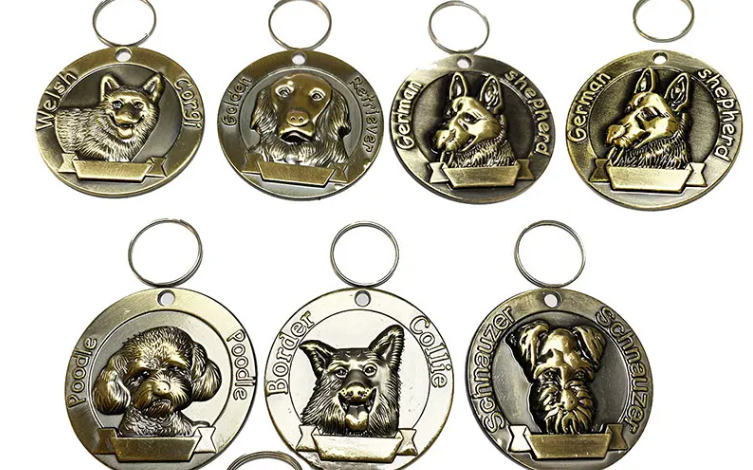Do You Have To Have a Dog Tag by Law?

Understanding you have to have a dog tag by law can be quite complex. While some areas have strict regulations, others are more lenient. Regardless of where you live, having a form of identification for your pet is crucial. It not only helps in reuniting lost pets with their owners but also provides peace of mind.
The responsibility of being a pet owner includes ensuring that your furry friend is easily identifiable. This can save time and stress if they ever get lost or wander off. Remember to check local laws regarding dog tags and consider alternative options if traditional law tags aren’t suitable for your needs.
Taking these steps will contribute to the well-being and safety of your beloved companion. Whether it’s through traditional tags or modern alternatives, keeping an ID on your pet is always a wise choice that shouldn’t be overlooked. Whether you’re a seasoned pet parent or considering bringing home your first four-legged companion, understanding the ins and outs of dog tags is essential for responsible ownership.
The history of dog tags and their importance in the military
Dog tags have a rich history that dates back to the Civil War. Soldiers used makeshift identification methods, often inscribing their names on pieces of cloth or metal.
As military operations evolved, so did the need for standardized identification. By World War I, the U.S. Army issued official dog tags made of metal. These tags provided vital information such as name, service number, and sometimes medical conditions.
The importance of dog tags in combat cannot be overstated. They help ensure that soldiers can be identified if they are injured or killed on the battlefield. This not only aids in proper notification to families but also plays a crucial role in organizing medical care.
Today’s military dog tags carry more than just personal details; they symbolize bravery and sacrifice. The legacy continues as these simple objects represent service members’ commitment and honor throughout history.
The legal requirements for dog tags in different states/countries
Legal requirements for dog tags vary significantly across states and countries. In the United States, many states mandate that dogs wear a tag displaying their rabies vaccination status and owner contact information. Some local jurisdictions may even require additional details.
Internationally, laws differ widely. For instance, in the UK, all dogs must have an identification tag with the owner’s name and address when in public spaces. Failure to comply can lead to fines or other penalties.
Certain regions take it a step further by enforcing microchipping alongside traditional tags as a means of pet identification. This is particularly relevant in places where stray animals are prevalent.
Understanding your area’s regulations ensures you remain compliant while protecting your furry friend from potential troubles on outings or during emergencies.
Why it’s important for pets to have identification
Identification for pets is crucial for their safety. A simple tag can be the difference between a lost pet and a happy reunion. When pets wander off, having identification ensures that anyone who finds them can quickly contact their owner.
Microchips are another excellent option. They provide permanent identification, even if tags fall off or fade over time. Many shelters scan for microchips when animals arrive, increasing the chance of reuniting with owners.
In addition to safety, having a proper ID also provides peace of mind. Owners know they have taken steps to keep their furry friends safe should an unexpected situation arise.
Moreover, local laws often require pets to wear some form of identification. Failing to comply could lead to fines or other penalties.
Taking the initiative to ensure your pet has reliable identification is an essential part of responsible pet ownership.
How to get a dog tag for your pet
Getting a dog tag for your pet is straightforward and easy. Start by choosing the right material; options range from stainless steel to aluminum or even plastic.
Next, consider what information you want on the tag. Most owners include their pet’s name, your phone number, and any medical conditions. Some people add addresses or microchip details for extra safety.
Once you have the information ready, explore various purchasing avenues. Many online retailers specialize in custom tags. Local pet stores often carry them too, allowing you to see options firsthand.
Don’t forget about personalization! You can choose fun shapes like bones or hearts, along with different colors that match your pet’s personality.
Ensure it fits comfortably on your dog’s collar without being overly bulky. A well-fitted dog tag ensures peace of mind when taking your furry friend out for adventures.
Alternatives to traditional dog tags
If you’re looking for options beyond traditional dog tags, several innovative alternatives exist. Microchip implants are a popular choice. These tiny devices contain your pet’s information and can be scanned at vet clinics or shelters.
Another option is personalized collars. Many come with stitched names and contact details, reducing the risk of losing your furry friend without identification falling off.
QR code tags have emerged as a tech-savvy solution. When scanned with a smartphone, they direct finders to an online profile containing vital info about your pet.
For those who favor aesthetics, engraved bracelets or special ID cards attached to leashes provide stylish yet functional choices.
Each alternative offers distinct advantages while ensuring that your pet remains identifiable in case of loss or emergency.



